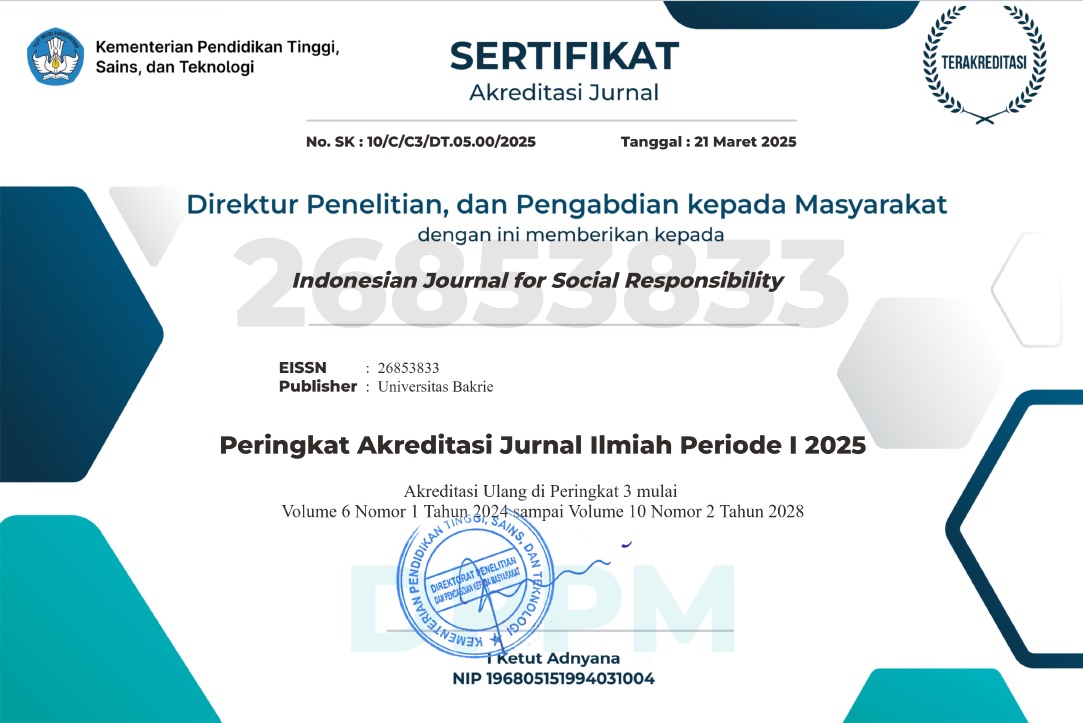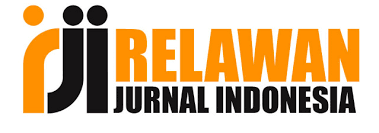Edukasi Pencegahan dan Penanganan Kekerasan Berbasis Gender Online
DOI:
https://doi.org/10.36782/ijsr.v6i01.242Keywords:
Gender, Gender-Based Violence, OGBV, School, StudentAbstract
Gender-Based Violence (GBV) and Online Gender-Based Violence (OGBV) behavior are issues that should not be allowed to occur in the educational environment, which should uphold ethical values concerning integrity, accountability, and respect for fellow human beings. Unfortunately, sexual violence continues to occur in various countries, including Indonesia. The purpose of this community service project is to provide Prevention and Management Education on OGBV so that students and educators can understand and identify GBV, especially OGBV. The community service activities were conducted at SMA Negeri 1 Bantan, Bengkalis Regency, by providing basic knowledge about gender and gender inequality that can lead to the emergence of OGBV. The method used in these activities was a workshop that required active participation from male and female students to discuss and provide examples of proactive steps to prevent OGBV. The results of this community service project indicate a 34.81% increase in students' understanding of OGBV. This increase was obtained from the pre-test and post-test results conducted by students after participating in the OGBV education activities. The enhanced understanding of OGBV by students following this community service project highlights the importance of education and awareness regarding OGBV. Consequently, it is hoped that this will contribute to efforts to break the chain of gender-based violence in general.
Downloads
References
Ajie, M. T. & Romanti. (2021, November 13). Mendikbudristek: Ada Darurat Kekerasan Seksual di Lingkungan Perguruan Tinggi!. Inspektorat Jenderal Kementerian Pendidikan, Kebudayaan, Riset, dan Teknologi Republik Indonesia. Diakses dari https://itjen.kemdikbud.go.id/web/mendikbudristek-ada-darurat-kekerasan-seksual-di-lingkungan-perguruan-tinggi/
Broadband Commission for Sustainable Development. (2019, Oktober 1). Child Online Safety: Minimizing The Risk of Violence, Abuse, and Exploitation Online. Broadband Commission for Sustainable Development. Diakses dari https://www.broadbandcommission.org/publication/child-online-safety/
CNN Indonesia. (2022, April 12). Nadiem Ungkap 22,4 Persen Siswa Potensi Alami Kekerasan Seksual. CNN Indonesia. Diakses dari https://www.cnnindonesia.com/nasional/20220412195946-20-783943/nadiem-ungkap-224-persen-siswa-potensi-alami-kekerasan-seksual
Dorasamy, M., Kaliannan, M., Jambulingam, M., Ramadhan, I., & Sivaji, A. (2021). Parents’ Awareness on Online Predators: Cyber Grooming Deterrence. The Qualitative Report, 26(11), 3685-3723.
Global Protection Cluster Working Group. (2010). Handbook for The Protection of Internally Displaced Persons. UNHCR. Diakses dari: https://www.globalprotectioncluster.org/sites/default/files/2022-04/idp_handbook_en.pdf
Hinduja, S. & Patchin, J.W. (2018). Connecting Adolescent Suicide to The Severity of Bullying And Cyberbullying. Journal of School Violence, 18(3), 333-346.
Ihsan, D. (2023, Februari 21). 10 Kekerasan Seksual Terjadi di Sekolah Pada 2023, 86 Anak Jadi Korban. Kompas.com. Diakses dari https://www.kompas.com/edu/read/2023/02/21/060400271/10-kekerasan-seksual-terjadi-di-sekolah-pada-2023-86-anak-jadi-korban?page=all
John, A., Glendenning, A. C., Marchant, A., Montgomery, P., Stewart, A., Wood, S., Llyod, K., & Hawton, K. (2018). Self-Harm, Suicidal Behaviours, and Cyberbullying in Children and Young People: Systematic Review. Journal of Medical Internet Research, 20(4), 1-15.
Kementerian Pendidikan, Kebudayaan, Riset, dan Teknologi. (2021, Desember 11). Wujudkan Lingkungan Perguruan Tinggi yang Aman dari Kekerasan Seksual. Kementerian Pendidikan, Kebudayaan, Riset, dan Teknologi. Diakses dari: https://www.kemdikbud.go.id/main/blog/2021/12/wujudkan-lingkungan-perguruan-tinggi-yang-aman-dari-kekerasan-seksual.
Komnas Perempuan. (2018). CATAHU 2018: Tergerusnya Ruang Aman Perempuan dalam Pusaran Politik Populisme. Catatan Kekerasan Terhadap Perempuan Tahun 2017. Komisi Nasional Anti Kekerasan Terhadap Perempuan. Diakses dari: https://komnasperempuan.go.id/catatan-tahunan-detail/catahu-2018-tergerusnya-ruang-aman-perempuan-dalam-pusaran-politik-populisme-catatan-kekerasan-terhadap-perempuan-tahun-2017.
Komnas Perempuan. (2021, Oktober 3). Komnas Perempuan tentang Hari Tanpa Kekerasan Internasional [Press Release]. Komisi Nasional Anti Kekerasan Terhadap Perempuan. Diakses dari https://komnasperempuan.go.id/siaran-pers-detail/siaran-pers-komnas-perempuan-tentang-hari-tanpa-kekerasan-internasional-2-oktober-jakarta-3-oktober-2021
Kwan, I., Dickson, K., Richardson, M., MacDowall, W., Burchett, H., Stansfield, C., Brunton, G., Sutcliffe, K., & Thomas, J. (2020). Cyberbullying and Children and Young People’s Mental Health: A Systematic Map of Systematic Reviews. Cyberpsychology, Behavior, and Social Networking, 23(2), 72-82.
Redline Indonesia. (2021, April 18). Kekerasan Berbasis Gender “KBG”. Redline Indonesia. Diakses dari https://redlineindonesia.org/kekerasan-berbasis-gender-kbg/
The World Bank. (2019, September 25). Gender-Based Violence (Violence Against Women and Girls). The World Bank. Diakses dari https://www.worldbank.org/en/topic/socialsustainability/brief/violence-against-women-and-girls
UN Women. (n.d.a). Frequently Asked Questions: Types of Violence Against Women and Girls. UN Women. Diakses dari https://www.unwomen.org/en/what-we-do/ending-violence-against-women/faqs/types-of-violence
UN Women. (n.d.b). Frequently Asked Questions: Trolling, Stalking, Doxing and Other Forms of Violence Against Women in The Digital Age. UN Women. Diakses dari https://www.unwomen.org/en/what-we-do/ending-violence-against-women/faqs/tech-facilitated-gender-based-violence
Wiryono, S. & Setuningsih, N. (2023, April 13). Komnas Perempuan Terima 4.371 Pengaduan Sepanjang Tahun 2022. Kompas.com. Diakses dari https://nasional.kompas.com/read/2023/04/13/22010161/komnas-perempuan-terima-4371-pengaduan-sepanjang-tahun-2022
World Health Organization. (2021, Maret 9). Devastatingly Pervasive: 1 in 3 Women Globally Experience Violence. World Health Organization. Diakses dari https://www.who.int/news/item/09-03-2021-devastatingly-pervasive-1-in-3-women-globally-experience-violence
World Health Organization. (2021, November 25). Gender Based Violence is a Public Health Issue: Using a Health Systems Approach. World Health Organization. Diakses dari https://www.who.int/news/item/25-11-2021-gender-based-violence-is-a-public-health-issue-using-a-health-systems-approach#:~:text=GBV%20has%20significant%20and%20long,stress%20disorder%2C%20and%20even%20death.&text=They%20are%20often%20among%20the,of%20contact%20for%20GBV%20survivors
Zilka, G. C. (2017). Awareness of eSafety and Potential Online Dangers Among Children and Teenagers. Journal of Information Technology Education: Research, 16, 319-338.















